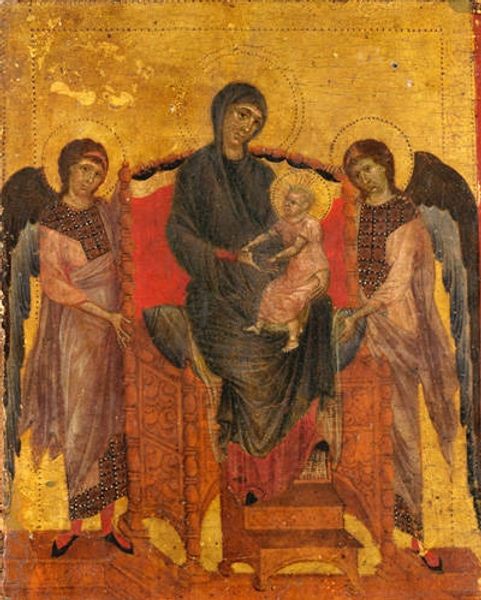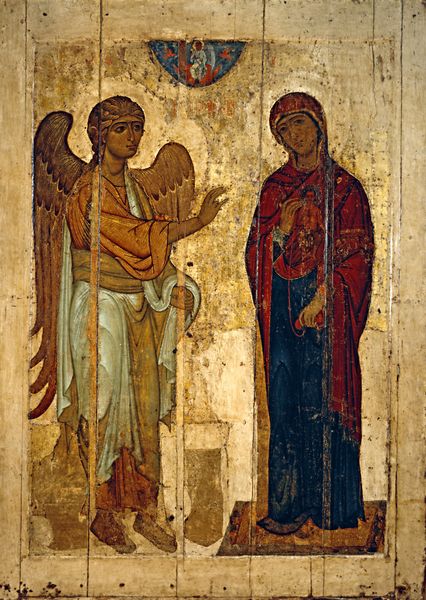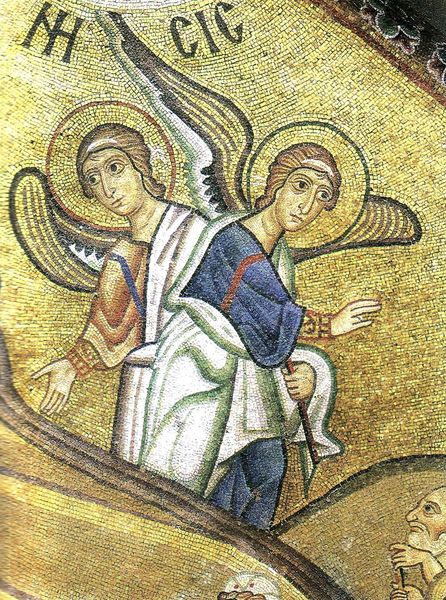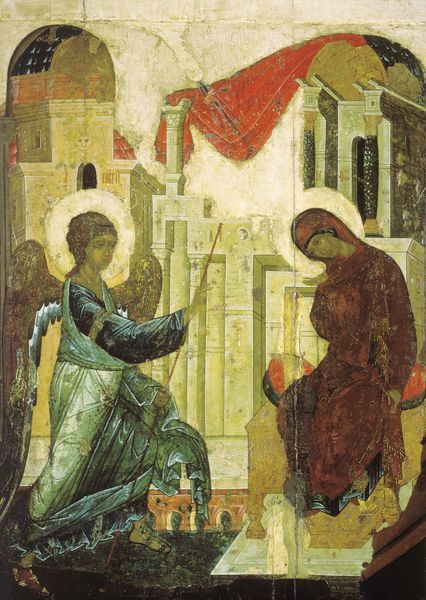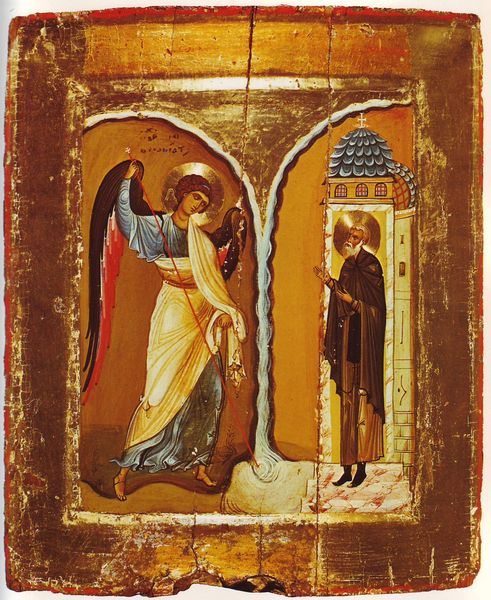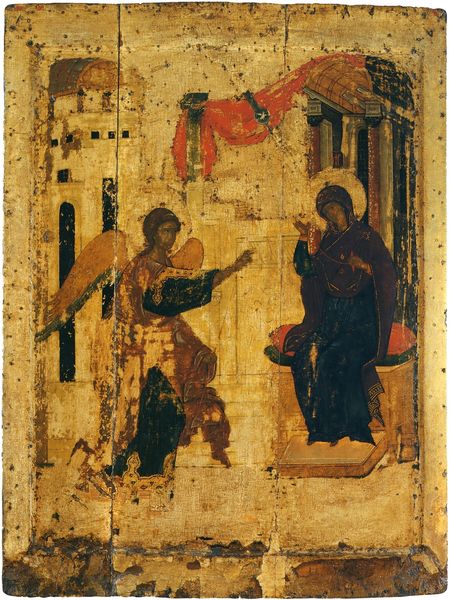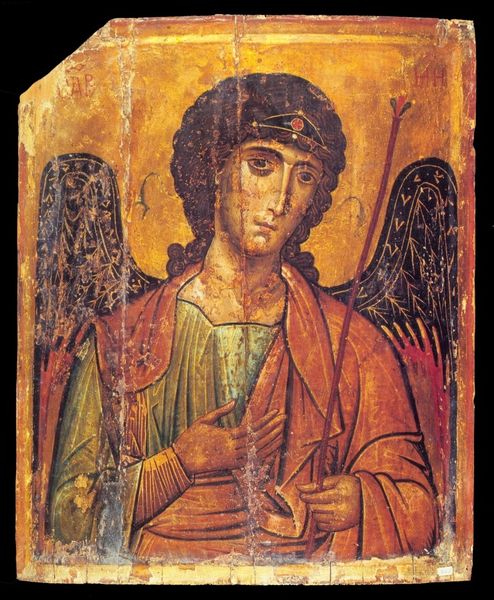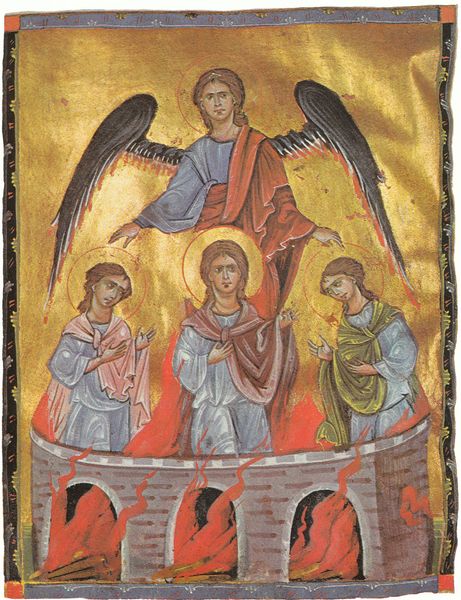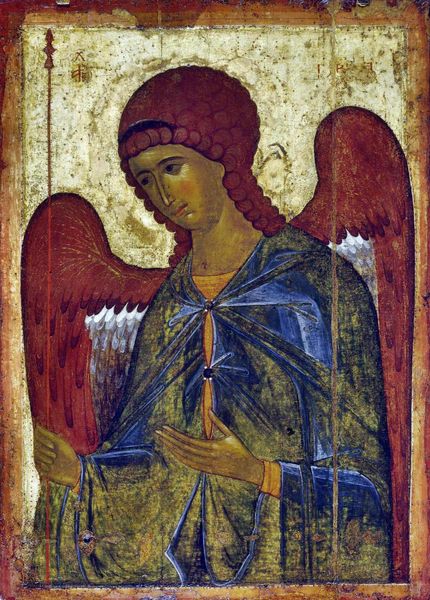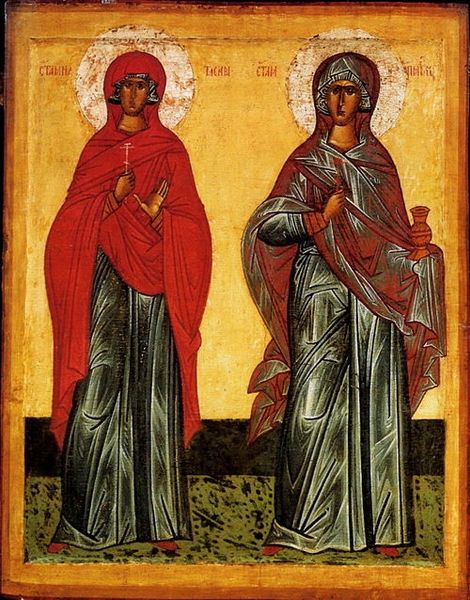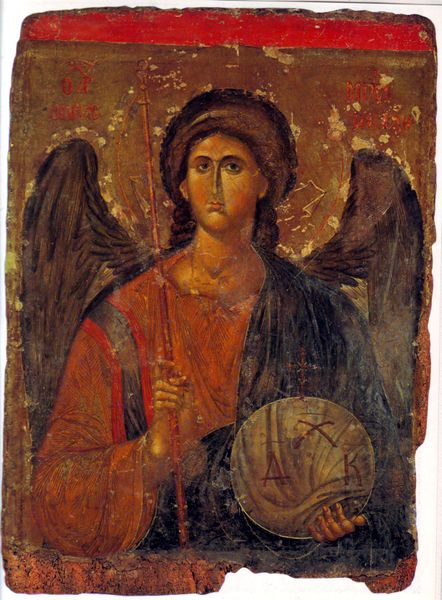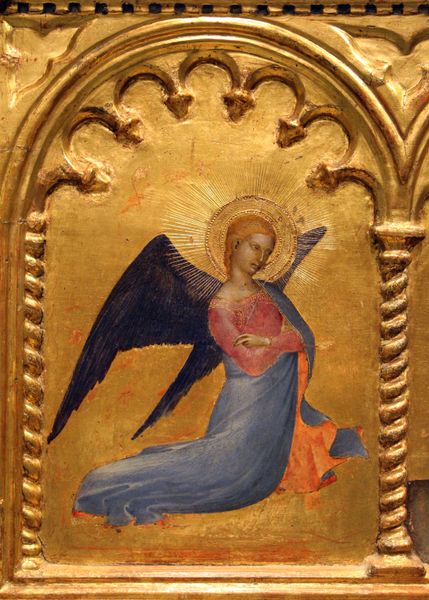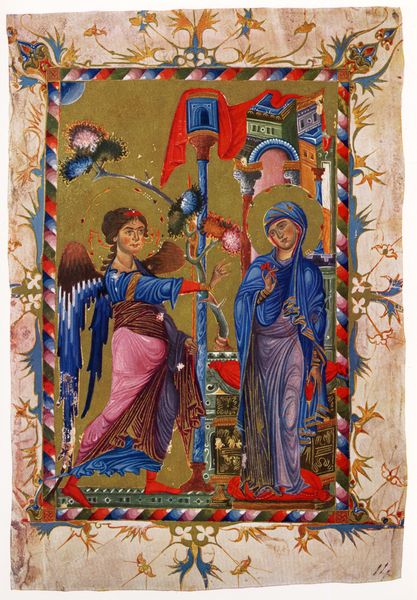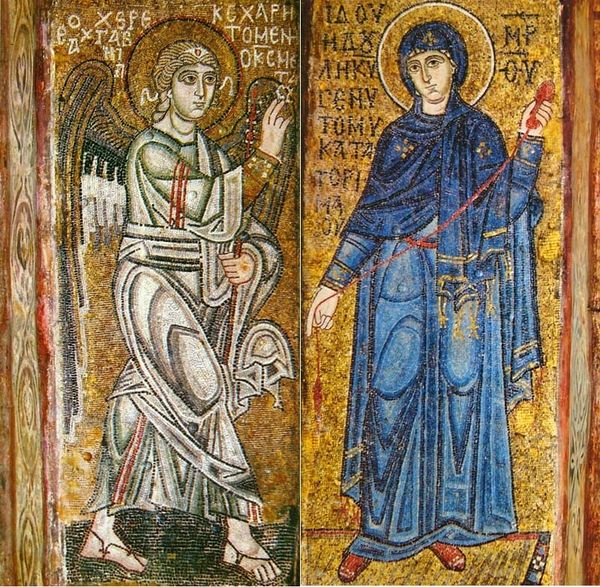
tempera
#
byzantine-art
#
medieval
#
narrative-art
#
tempera
#
figuration
#
history-painting
Copyright: Orthodox Icons,Fair Use
Editor: This is the Ohrid Annunciation, a tempera painting dating back to 1325. The way the angel is positioned seems to defy gravity. What can you tell us about this work? Curator: This icon offers a fascinating glimpse into the artistic and religious context of its time. Notice the stylized figures and the symbolic use of gold, so typical of Byzantine art. The setting, which presents a mix of interior and exterior elements, highlights the icon's function as more than just a pretty picture, it’s a sacred object, a focal point for prayer and mediation. Editor: That makes sense. The detail in the architectural backdrop also suggests it isn’t just a backdrop but holds some symbolic importance, doesn't it? Curator: Exactly. It reinforces the narrative and invites contemplation, and it roots this event, though miraculous, within a specific visual and architectural language of power and holiness familiar to the viewers of the time. And this iconography reflects the societal roles imposed on people – where God comes to people as they attend to their normal day. This affirms the mundane realities, even exalts them. It tells us about the concerns and spiritual values of the community for whom it was created. Who has access to it and under which circumstances affects how we read it. Editor: So, the piece speaks volumes about the values and daily life back then! That gives me a fresh perspective on Byzantine art. Curator: And consider, what might an Annunciation narrative mean in today’s context? Do people respond to it the same way today? It’s the political aspect that matters now: What could public art offer? Editor: Thanks. Thinking about accessibility really made me rethink what art means for a society, and that perspective really changed how I see everything!
Comments
No comments
Be the first to comment and join the conversation on the ultimate creative platform.
